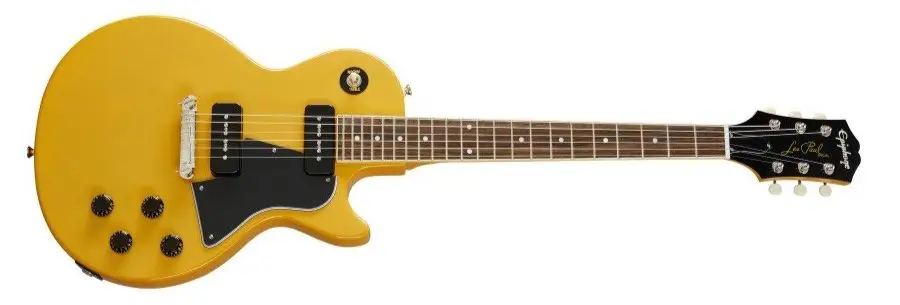When it comes to electric guitars, Gibson is a brand that needs no introduction. Known for their iconic Les Paul models, Gibson has been a staple in the music industry for decades. However, their more affordable counterpart, Epiphone, has also gained popularity among musicians looking for quality instruments at a lower price point.
Body, Construction, and Paint
Both the Epiphone Smokehouse and the Gibson Les Paul Special have bodies and necks made of mahogany. However, the quality of the wood used in both guitars didn't impress during body tap tests, lacking resonance. In terms of paint finishes, the Epiphone Smokehouse features an opaque yellow paint with a gloss polyurethane finish, while the Gibson Les Paul Special has a more translucent paint that allows the grain of the mahogany to show through subtly, finished in gloss nitrocellulose lacquer. The Gibson's finish is considered superior in terms of aesthetics. Construction quality was good on both guitars, with no issues of ugly fretwork. However, the Gibson had better overall fretwork quality, surprising the reviewer. The Gibson also weighed slightly less than the Epiphone, although this didn't make a noticeable difference in terms of body weight.
Tuners
Both guitars feature Kluson clone tuners, with the Gibson's being smoother but still not meeting the reviewer's standards. The Epiphone tuners were stiff and grabby, lacking lubrication points. It is suspected that both guitars are built in the same factory, with the Gibson version having the Gibson logo stamped on the white metal covers. The overall quality of the tuners was considered subpar, and the reviewer suggests that using better tuners could greatly improve the performance of both guitars.

Necks
Both the Epiphone Smokehouse and the Gibson Les Paul Special have straight necks, with the Gibson having slightly better action. However, the action on the Epiphone could easily be adjusted with a quarter turn of the truss rod. Both guitars have nickel frets, and the fretboard wood is Indian Rosewood on the Gibson and Indian Laurel on the Epiphone. Both guitars required some finish sanding and a good coat of polish for optimal playability. The reviewer found the Epiphone neck to be slightly chunkier than the Gibson's, but both were comfortable to play. The scale length, number of frets, and fretboard radius were the same for both guitars. The reviewer suggests using steel wool and wax for a smoother and faster playing experience. The nut on both guitars is Graph-Tech Tusq, which was a pleasant surprise in terms of quality.
Pots, Hardware, and Pickups
The Epiphone Smokehouse had smoother volume and tone pots compared to the Gibson Les Paul Special. Epiphone uses CTS pots, while the Gibson's pots are suspected to be of lower quality. Both guitars had tone pots that cut volume and treble significantly when rolled off. The Gibson pickup switch felt fragile and the selections weren't crisp, while the Epiphone output jack held the cable more securely. In terms of hardware, both guitars were virtually identical, with the only difference being the color of the switch cap. The Gibson uses a wraparound tailpiece as the bridge, while the Epiphone has a compensated tailpiece, which is considered better. Both guitars have P90 pickups, with the Gibson pickups being slightly brighter and the Epiphone pickups having a warmer and richer bass response. The reviewer found both pickups to be satisfactory but suggested replacing them with hand-wound pickups from Bare Knuckle for an even better sound.
Based on the comparison, the Epiphone Smokehouse is considered the better guitar overall, offering good construction quality, a superior paint finish, and smoother pots. The Gibson Les Paul Special, although of higher quality than recent Gibson experiences, doesn't justify the premium price tag. The reviewer suggests that if they were looking for a Les Paul Special, they would choose the Epiphone without hesitation, saving money while getting a better guitar. They would consider replacing the pickups and tuners for an even better playing experience. Ultimately, personal preferences and individual needs should be taken into account when choosing between the two models.
Thank you for reading and being a part of That Guitar Lover. Until next time, peace!
If you want to know other articles similar to Epiphone smokehouse vs gibson: a detailed comparison you can visit the Guitars category.


Related Articles